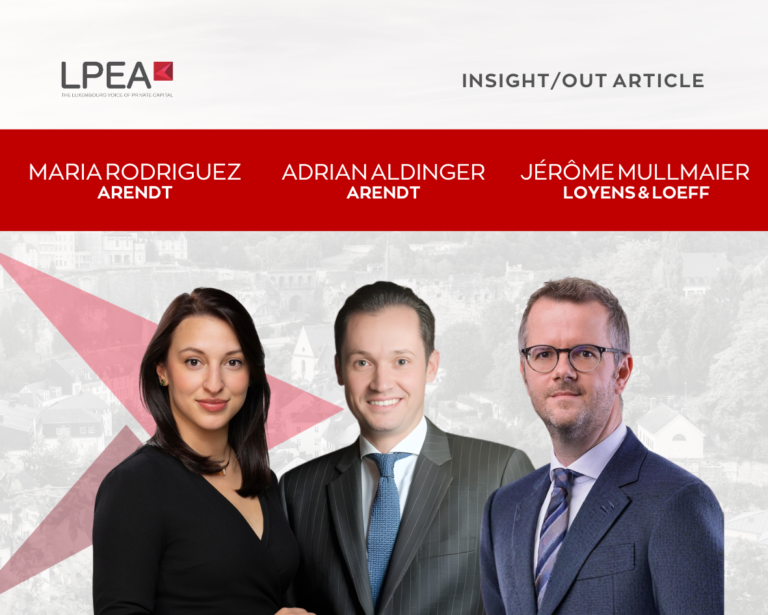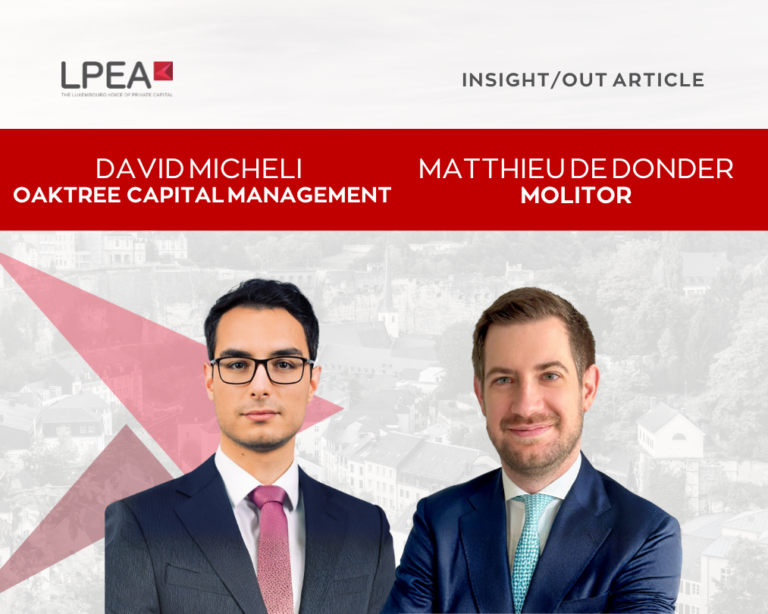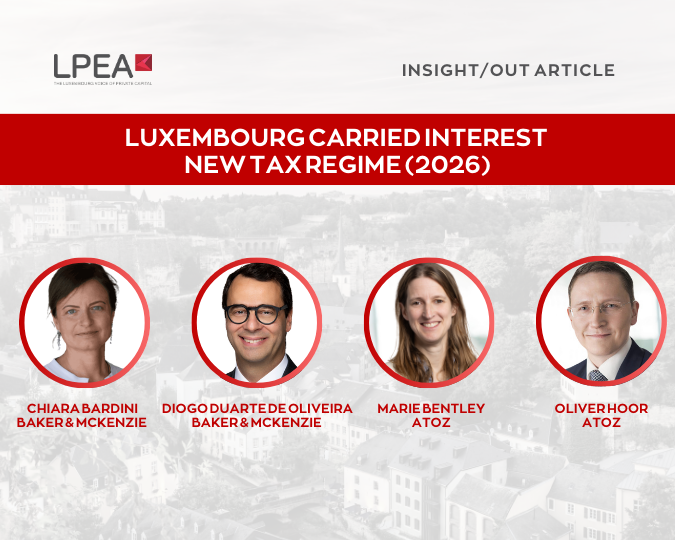Interview by Stephane Pesch, CEO, LPEA as published in Insight Out #28.
In this interview, Richard Reis (Partner, Mid-Market) and Jack Azoulay (Senior Partner, Climate Action) share the recent news about how this historical PE-house has turned into a platform, now offering two mid-market strategies: one aiming at supporting successful transitions and the other focusing on decarbonisation as an extra value creation lever.
Can you tell us more about Argos Wityu and its specificities?
Richard Reis: Argos Wityu is an independent private equity firm with over 30 years of experience, which makes us one of the most experienced mid-market investment group in Europe. Today, we count 70 professionals, of which more than 40 work in the investment team. We currently manage €1.7bn of assets.
Let’s talk about what makes Argos specific then. I see three main characteristics:
First, we are an investment platform with two clear strategies. Since 1989, we have been deploying our historical Mid-Market buyout strategy and, more recently, we have incepted our Argos Climate Action strategy, which leverages on our buyout know-how with an extra decarbonisation focus.
Secondly, we are experts in transforming SMEs. Over the decades, we have built an extensive experience in transforming SMEs showing strong fundamentals and have learnt to bring solutions to atypical situations or deal environments. In other words, our platform unlocks potential and supports companies, with a strong emphasis on transformation, growth as well as close relationship with management and a “hands-on” approach.
Third, we have a strong European footprint. We are an authentically pan-European investment group with 7 offices across Europe based in Amsterdam, Brussels, Frankfurt, Geneva, Luxembourg, Milan, and Paris. We believe a strong local presence is instrumental to actively cover, on a day-to-day basis, relationships with our local ecosystems in our 8 countries (Benelux, DACH, France and Italy). This is rather unique in the middle market segment and significantly contributes to geographically diversify our investment portfolio. Additionally, this configuration provides extra strength to companies we support, especially when it comes to implementing cross-border organic growth or a buy and build strategy.
Jack Azoulay: I would like to add two other specific features:
The first is that we are a team driven by a business mindset. Our actions and solutions are driven by a strong entrepreneurship spirit. We spend a lot of time with management teams (pre- and post-acquisition) to design strategies, identify growth opportunities and solve challenges together. Our approach to leverage is prudent, since we prefer that our managers focus on growing their business and feel confident in their ability to invest.
The second is that we have a strong set of core values, which go hand in hand with this entrepreneurial mindset. We believe in trust, reliability, and transparency, since we are convinced that success is made by people, and we are enthusiastic about rolling up our sleeves and helping business leaders to write new stories together. We also do our best to be reliable and caring with all our stakeholders. Furthermore, we truly believe in the virtues of diversity and value international profiles: our team counts 16 different nationalities and as many different languages are spoken in our offices!
Our large team, combined with our geographical proximity, gives us a unique and agile way of supporting managers. Our aim is to accompany them every step of the way to a strategic position within their sector.
Why and how are you active in Luxembourg?
JA: We have been present in Luxembourg for many years. Being a pan-European group, we rather naturally decided to settle our holding company (Argos Wityu Partners, formerly Argos Soditic Partners) in Luxembourg as soon as 1995. In addition, our funds are also Luxembourg-based. They are composed of institutional investors such as banks, insurance companies, pension funds, funds of funds, sovereign funds, but also increasingly family offices and entrepreneurs. We obviously welcome Luxembourg investors willing to invest in pan-European mid-market buyout strategies.
RR: In addition to what Jack just mentioned, we have a team of professionals operating locally in our Luxembourg office (back and middle office) and notably the Secretary General of our group. But not only. On the investment side, we are also actively looking to support Luxembourg based companies, with the support of the Belgian investment team. We recently identified several deal situations implying SMEs with founders or family transition challenges as well corporate carve-outs. We work to find good opportunities to invest in the local economy in the near future.
You have been one of the pioneers of private equity in Europe for over three decades – can you describe us what your historical strategy is?
RR: We have indeed built a solid track-record in executing close to 100 transactions since our inception in 1989. Our historical Mid-Market strategy relies on our deep experience of bringing solutions in atypical situations such as management buy-ins, management-buy outs, corporate carve-outs, corporate spin-offs, complex auctions, business arbitrage, business reconfigurations, privatisations. Also, family-owned business or founder transition challenges have been repeatedly solved by our deal team in countries we are operating (families and founders count for half of our transactions since 2000). Finally, and to be complete, we have found solutions to several situations implying growth capital, as well as multi-country buy-and-build strategies.
We systematically acquire a controlling stake in companies with revenues up to €600m and invest between €25m and €100m per transaction. As Jack mentioned earlier, our approach to financial leverage is prudent and tailored to the specific characteristics of each business, as we privilege the focus on expansion, innovation, recruitment, and investment.
With regards to the sectors we invest in, our approach is agnostic. We currently support 23 companies active in different verticals such as Industry (Agôn Electronics, EPC, Gantrex, Norline AG, TKH France), Business Services (Ijssel Technologie, Julhiet Sterwen, Sicura), Tech (Coexya, SB Italia), Consumer Goods (Emosia Group, Henri Selmer, LoQu), Food (Moro), Transport (Schenk), and Technical Boats (Zodiac Milpro).
We also have a clear and resolute approach to sustainable investing: to us, ESG is a driver of innovation and opportunity. We recognised some years ago the importance of corporate social responsibility as an enabler to improve companies’ growth, limit risk factors and increase operational efficiency.
Concretely, we have multiplied our actions in this field, amongst which I would mention: (i) joining the UNPRI, (ii) signing the International Climate Initiative, and (iii) committing to a carbon reduction trajectory according to the Science Base Target Initiative, as part of the first 15 private equity firms worldwide. Our approach is materialised at 3 levels: (i) pre-acquisition (with a risk/opportunities identification and the design of an action plan), (ii) during the holding period (with continuous improvement initiatives) and (iii) at exit (showing progress and therefore capturing value). We implement our ESG strategy, related actions, and pragmatic reporting at the portfolio level together with the support of Jessica Peters, our head of ESG, based in Brussels.
You now define yourself as a “platform”, since you have launched an additional investment strategy focused on climate transition – can you tell us more about it?
JA: Absolutely! We recently decided to expand our offer to investors by launching Argos Climate Action. This innovative second strategy has been tailored to shape sustainable leaders through a “Grey to Green transition”. It leverages on our know-how, acquired over the past three decades, in deeply transforming European small and mid-sized companies while adding an extra value creation lever by engaging our portfolio companies in a strong and swift decarbonisation. Unlike many other investors, we do not focus on already green assets, on renewable energies or on companies enabling others to decarbonise. On the contrary, we choose to select everyday-life companies, which also need to adapt to a far less carbon-intensive world, and to find ways of steeply reducing the carbon footprint of their activities.
The core of this new strategy relies on the conviction that investing in such companies with strong potential will allow them to gain a competitive advantage, therefore generating both strong financial returns and a strong environmental impact. Indeed, by becoming the greenest in their industry, these companies will gain market share, attract, and retain the best talents, reduce the volatility of their cost base and benefit from a valuation premium at exit.
Backed by public institutions, institutional investors, and family offices, all with deep convictions about the need to actively contribute to mitigate climate change without compromising on financial returns, we have announced a first close of our fund at 120 m€ this summer, reaching 40% of our target. We are now actively searching for opportunities to invest in and would be very happy to make such a deal in Luxembourg!
The Argos Climate Action team is composed of partners across our different European offices combining complementary backgrounds, with both strong knowledge in private equity and high-level experience on sustainability topics. We have developed a solid methodology to identify the best opportunities and build ad hoc decarbonisation plans for each company, since one of our first lessons is that there is no “one size fits all”.
Similarly to our mid-market strategy and as mentioned by Richard, our Climate Action fund focuses on all sectors, with a special interest for companies with a substantial initial carbon footprint which can be strongly reduced with existing mature technologies. This typically excludes software or consulting companies, but leaves a wide range of opportunities in sectors such as industry, chemicals, metals, agri-food, logistics, etc. It targets companies with an EBITDA between €3m and €15m, allowing us to deploy between €15m and €50m equity in each transaction.
According to you, what are the main challenges in the current market environment?
RR: I would like to focus on the Benelux mid-market specifically. The current market in Benelux reveals several challenges which are complex but can also create attractive opportunities for Argos Wityu, perceived as a solution. If I must select some, let me pick two.
First, deal uncertainty. Obviously, this does not apply to the “trophy assets”, regarding which the competition between buyers is intensifying (helped by the rarefication of such targets and the high level of dry powder). Over the past 3 years, successive external factors have impacted a few of SME’s performance and trajectory (current trading, profitability, indebtedness/cash profile): Covid-19, supply chain disruption, and adverse macro-economic environment (persistent inflation, energy price increases, geopolitical tensions). In a mid-market with a lower deal volume compared to pre-Covid level, the sellers who took the decision to put their assets on sale over the past 12-18 months (logically) adjusted their exit processes to regain process security (deeper vendor due diligences, additional processes milestones, earlier access to management, lender education). Nevertheless, on the other side of the table, buyers are (also logically) still extremely prudent, and conduct more extensive diligences (commercial, market, finance, operations) requiring additional time and work to deliver a transaction. Consequently, transactional processes are more complex and imply a deeper relation with deal stakeholders, and a step-by-step approach to reach an agreement. This context fits very well with our approach and our experience to deliver a tailor-made solution to our counterparts.
Second, valuation gap. If the buy-side conviction is made, the complexity is not entirely solved. Then comes the topic of valuation. We noticed a high number of processes or structured auctions put on hold, due to valuation differences between buyers and sellers (at non-binding offer stage or later). This situation can be explained by the deal uncertainty discussed earlier (current trading, external factors), but also by a reduced access to leverage, and if available, increased borrowing costs. This gap is a real topic and favours deal makers who are prudent with leverage (or at ease with full equity investment) and experienced in offering a sophisticated solution when it is about price structuring, as we are.
On the valuation topic, we have been publishing the Argos Index®[2] since 2006, which measures the average quarterly valuation of transactions closed in the European mid-market. The last version of our Index provides interesting insights on the development of deal valuation, and potentially, on the valuation gap evolution.
While the Argos Index® was climbing at 10xEBITDA 12 months ago, the last Q3 2023 version stands at 9.1xEBITDA, showing a clear drop after a relative stability in the first semester of 2023. It seems that sellers (in all segments) started to adjust their expectation to the new environment. Besides, the proportion of transactions at multiples > 15x EBITDA is near historic lows and the ones agreed < 7xEBITDA reached high records (30% of transactions).
JA: To complement Richard, I will focus on the topic of decarbonisation, which is at the core of our Climate Action strategy.
I believe we are at a strategic momentum, where reducing the carbon footprint is becoming a rational investment opportunity, especially if you can benefit from a first-mover advantage. SMEs in Europe represent half of the GDP, but 63% of all direct and indirect greenhouse gas emissions, which means they represent a huge pool of potential CO2 emissions reduction. Yet, they are still lagging behind in terms of decarbonisation, mostly because of their lack of funding and expertise on this topic.
We wanted to understand more precisely where the executives of these companies stand on decarbonisation and therefore decided to launch a climate transition barometer together with the BCG[1]. The results are very interesting: first, there is a high awareness among European mid-market companies across all regions and sectors, as 84% consider the reduction of GHG emissions “important” or even “critical”. Among them, 71% perceive the climate transition as an opportunity, rather than a risk or a constraint. Yet, on the other hand, only 11% of these European SMEs declare having started to actively invest in order to reduce their carbon footprint within a structured plan, although more and more decision makers include the CO2 intensity of their suppliers as a selection criterion.
There is therefore a clear gap between the strong conviction around the need to act and effective actions, mainly explained in our barometer by financial headwinds, regulatory complexity, and lack of know-how within these SMEs. Hence the opportunity we perceive to grant a significant competitive edge to companies by bringing them the funding and knowledge needed to move from wishful thinking to effectively acting.
[1] Read the The Argos – BCG Mid-market Climate Transition Barometer
[2] Read the Mid-market Argos Index® 3rd quarter 2023




